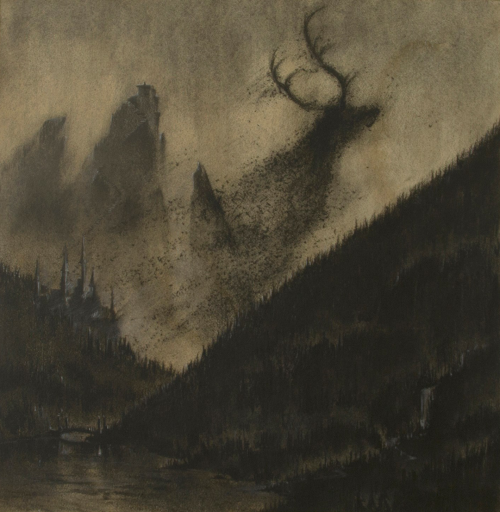I Am Proposing Something More Like A Founding Myth For An Aspect Of The Way Our Minds Are Set Up. I
I am proposing something more like a founding myth for an aspect of the way our minds are set up. I am sitting in a coffee shop full of predators. They eat animal flesh, they have the binocular vision typical of animals that need to focus on and assess prey from afar, from a still vantage point. They manipulate one another expertly - they manipulate millions, organizing each other into tribes, cities, armies, nations. They use each other. They might have any of a thousand reasons for saying something, other than the truth. And yet, they are the most compassionate animals ever seen. One reason for an animal to evolve a capacity to think about other animals is in order to benefit from cooperation within a herd. There is (also) a very different reason evolution would favor a faculty for understanding other animals: to prey on them. If you want to hunt and eat other agents, it helps to be able to predict their behavior - so you model it. Humans are... an animal with these twin drives. The ability to receive signals from a member of the herd empathetically, and the ability to model the behavior of another agent predatorily. Being modeled explicitly as a system with inputs, outputs, and predictable behavior can creep people out. This contributes to the strong negative responses to attempts to learn social skills by building an explicit model of social interactions. Acting, not quickly and spontaneously, but slowly, deliberately, thinking about a problem for a long time before making a move. It seems like the sort of thing a person would do - not to someone they wanted to cooperate with - but someone they wanted to eat. It feels like having a single set of eyes, close together with binocular predator vision, silently watching you. A solo predator and a herd animal, inextricably connected together, in our more reflective moments not always sure we can trust ourselves even to be good to our friends, not sure we can trust others to be what they say they are, and yet, something in this unusual combination lets us fake it, lets us approximate what it might be, to be a mind that truly loves another.
Benjamin R. Hoffman ‘The Predator in the Herd’
More Posts from Dclcq and Others

original artwork for Agalloch, by Fursy Teyssier of Les Discrets

Tsang Chui Mei(Chinese, b.1972)
The Death of Strawberry 士多啤梨之死 2011 Acrylic on canvas 122 x 61cm via

Checkout - Caroline Bird


Fine Art of the Forest
(c) riverwindphotography, August 2024
Finnish bread advertisement, hinted to me by anonymous submitter. “Only in this country you can avertise bread this way.” This piece has no subtitles but here’s translation:
Father: “Well are you hungry or not?” KOVAA KUIN ELÄMÄ (HARD AS LIFE)
(And if you’re interested in the last part the guy says that you can get jälkiuunileipä or after-oven-bread in smaller bits too)
Early in the 19th century, Sydney Smith, one of the founders of the Edinburgh Review, remarked that if we had made the same progress in the culinary arts as we have made in education, we should still be eating soup with our hands.
Joseph Epstein
Power makes you lazy. While those in situations of power and privilege often feel it as a terrible burden of responsibility, in most ways, most of the time, power is all about what you don't have to worry about, what you don't have to know about, what you don't have to do.
David Graeber
-
 herblinz reblogged this · 4 years ago
herblinz reblogged this · 4 years ago -
 herblinz reblogged this · 4 years ago
herblinz reblogged this · 4 years ago -
 dclcq reblogged this · 4 years ago
dclcq reblogged this · 4 years ago

